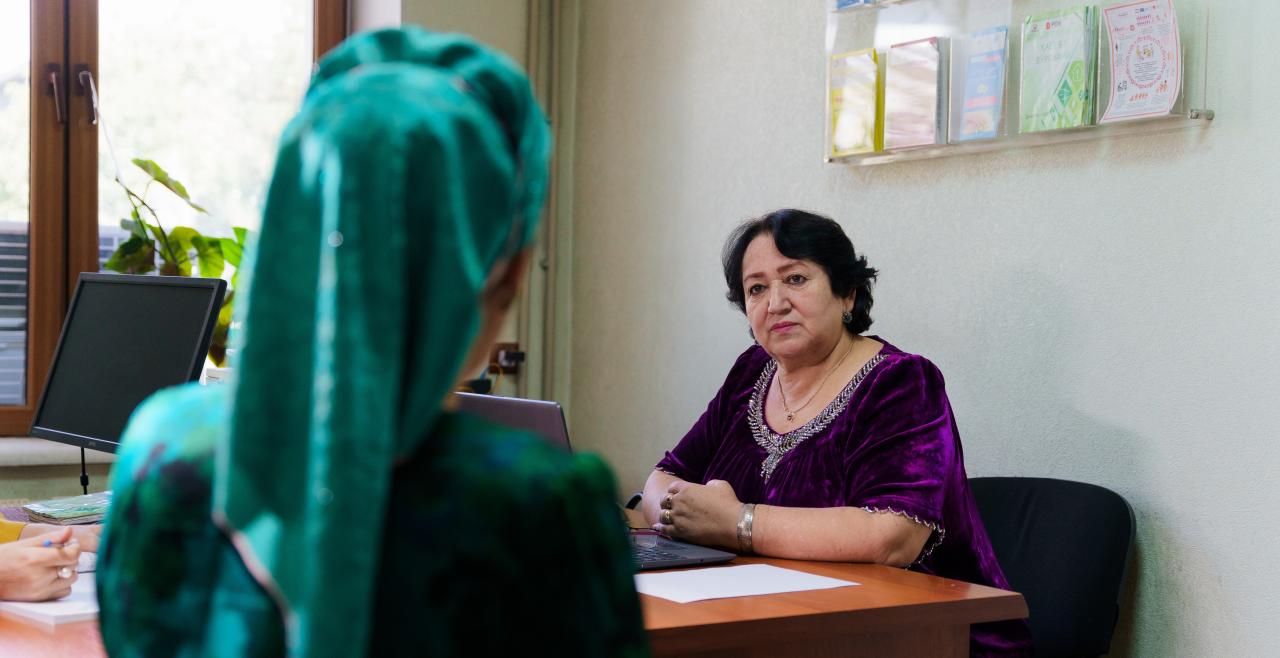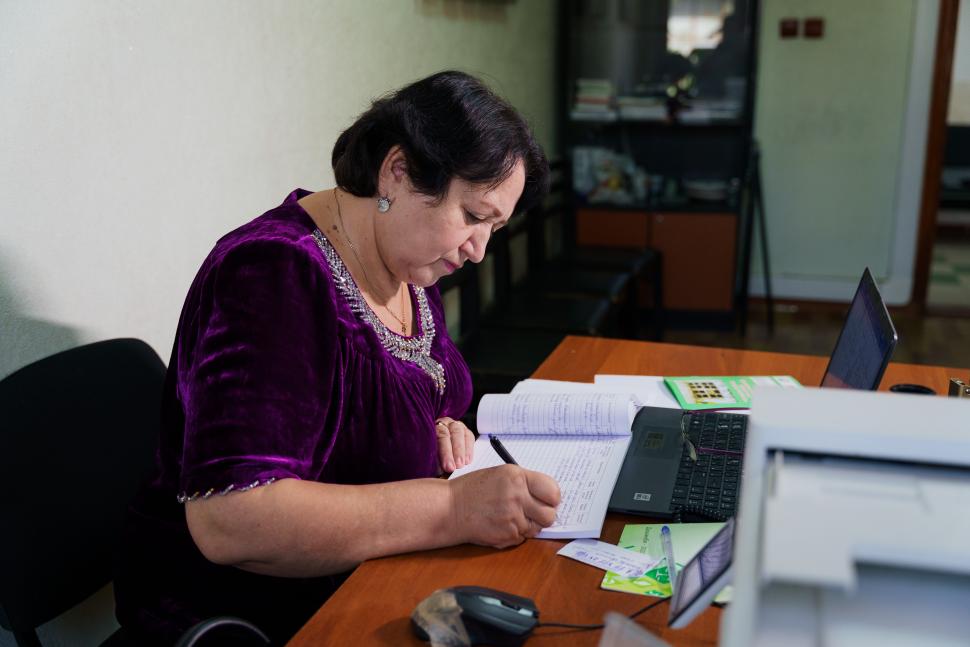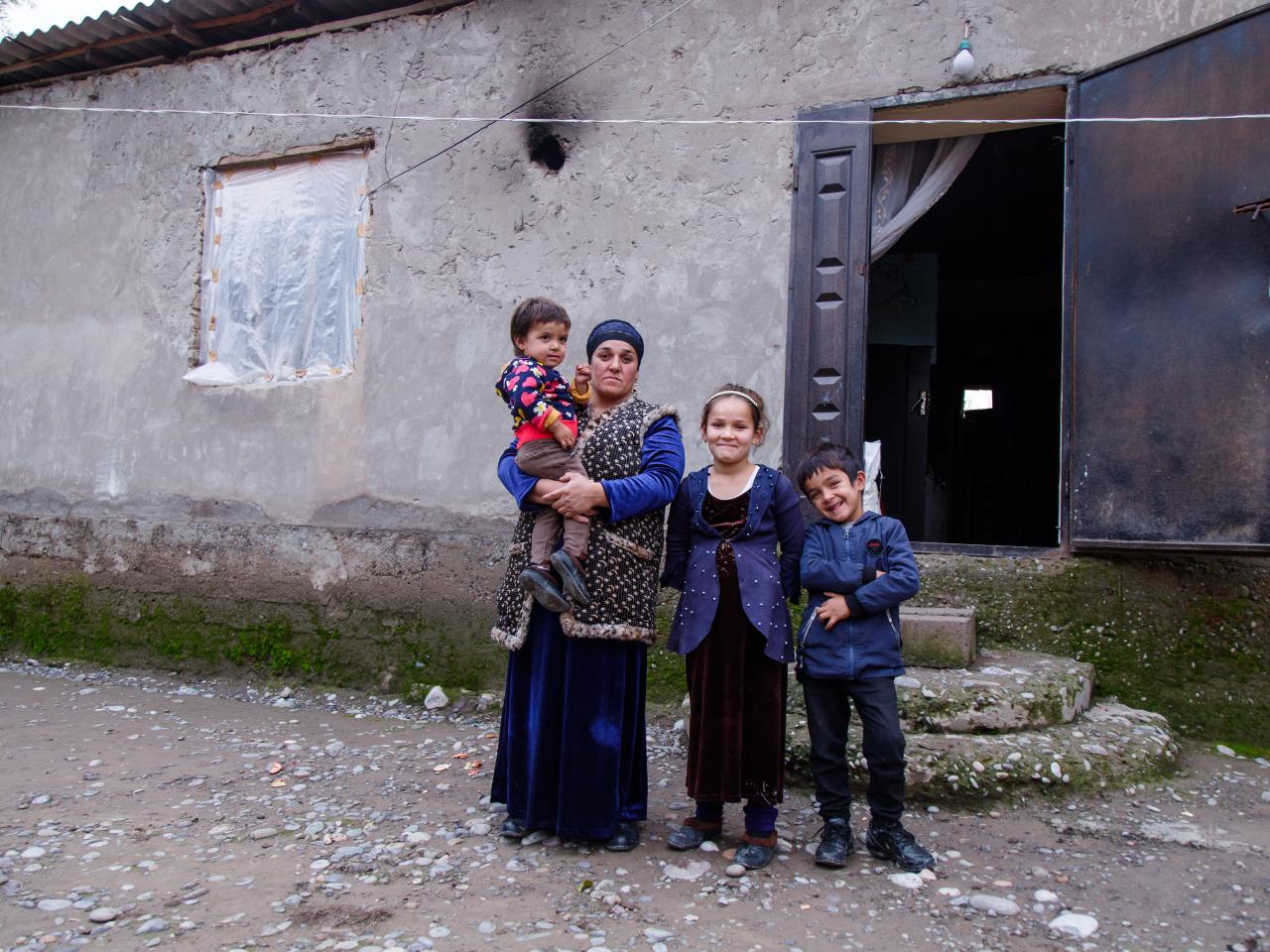One call can change a life: The hotline supporting survivors of gender-based violence in Tajikistan

HISAR, Tajikistan - Munisa Amirova*, 25, was born and raised in the rural area near Tajikistan’s Hisar city. In 2020, she entered into an arranged marriage. From the outset, her mother-in-law and sister-in-law disliked her. Over time, those tensions escalated into physical violence against Ms. Amirova. In addition to the violence, she was expected to perform all the household chores and received no support from her husband.
Ms. Amirova hoped that the situation with her in-laws would change for the better once she was pregnant. On the contrary, when they found out that she was pregnant, they insisted on an abortion. Ms. Amirova kept her next pregnancy a secret and was five months along by the time they noticed.
“I screamed and cried, but no one came to help me... When the fire was out, I became unconscious.” - Munisa Amirova*, 25
One day, while Ms. Amirova was baking bread in a tanur (a traditional Tajik clay oven) with gas, her sister-in-law turned on the gas and directed the flames towards her.
“I screamed and cried, but no one came to help me. I ran to the water tap. When the fire was out, I became unconscious,” says Ms. Amirova. Her neighbours called an ambulance, and she was hospitalized. Half of her body was burned and she also learned that she had lost her baby.
“My husband and my father-in-law were more worried about my sister-in-law than about me,” says Ms. Amirova. Her husband convinced her to tell the police that what happened was an accident, and she complied. During the three months Ms. Amirova was hospitalized, her husband visited her only once.
When Ms. Amirova returned home and became pregnant again, her husband divorced her. As their marriage was a religious marriage that had not been officially registered, she was not entitled to any spousal support or assets in the divorce.
A lifeline
Ms. Amirova's story is not unique. According to a 2021 UNDP study, in Tajikistan, 20 per cent of women experience physical violence, 31 per cent of women face economic violence, 21 per cent endure psychological violence and 6 per cent experience sexual violence.
In 2022, the Committee of Women and Family Affairs, supported by Spotlight Initiative, re-launched a hotline to provide services to survivors of violence.
The centre running the hotline provides psychological and legal consultations over the phone and in-person to survivors of gender-based violence. Service is provided free of charge, 24 hours a day. In cases where they can’t help, they refer clients to the relevant authorities, such as the police or the prosecutor’s office.
“We receive 10 or more calls a day from all over the country. The cases are very different, and so are the people [seeking support]." - Makhbuba Azimova, hotline psychologist
“We receive 10 or more calls a day from all over the country,” explains Makhbuba Azimova, a hotline psychologist. “Calling the 1313 hotline is free. The cases are very different, and so are the people [seeking support].
“We have an individual approach to everyone. Our goal is to listen carefully to the person so that the help is as effective as possible.”
“Our lawyers work closely with the survivors. They draft statements and prepare women’s documents for the court. People come to us from all over the Republic, from different regions and rural areas,” Ms. Azimova says. “We cooperate with local administrations of the regions to ensure that the assistance is prompt. They respond to applications and visit victims of domestic violence.”
In the first nine months of 2023, more than 1800 people called for support – nearly 200 more than in the previous year, underscoring the importance of this service.
A new start
Ms. Amirova knew that she wouldn’t be able to cope alone with the ongoing physical and mental trauma of her abuse, so she got in touch with the hotline. Through them, she was able to access support from psychologists, lawyers and other hotline employees.
After several therapy sessions with professional psychologists, Ms. Amirova began to feel better.
She was also provided with professional legal support, which led to the prosecution of her sister-in-law and husband. Additionally, Ms. Amirova was eventually able to claim alimony for her young daughter.
Periodically, Ms. Amirova still receives a welfare check from her psychologist and lawyer. With this support, she has managed to not only cope but thrive.
*Name has been changed to protect the survivor's identity.
There is #NoExcuse for gender-based violence. If you, your loved ones or friends have experienced or witnessed any form of gender-based violence, do not stay silent. Reach out to the hotline at 1313 (for Tajikistan callers). They are always ready to provide assistance and support.


